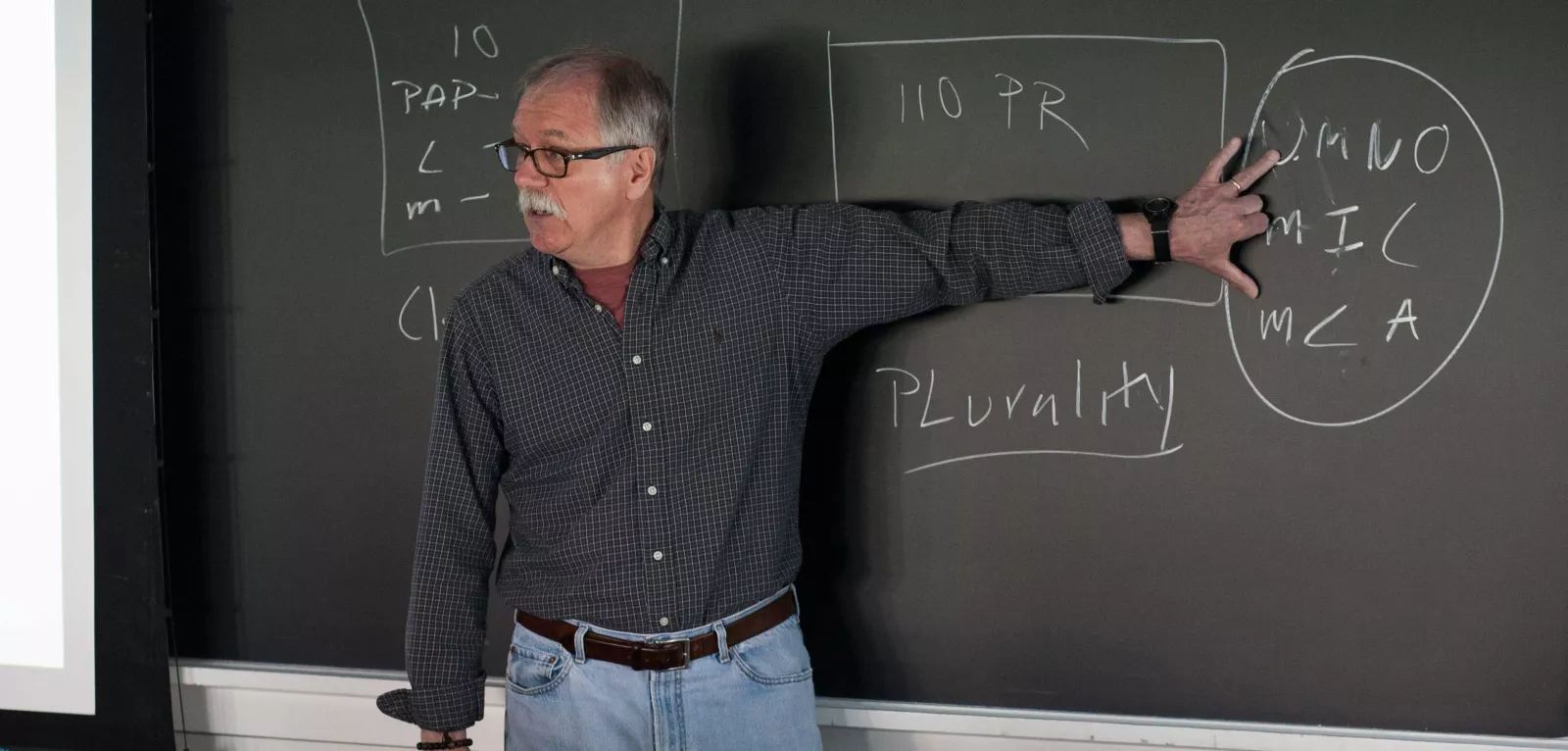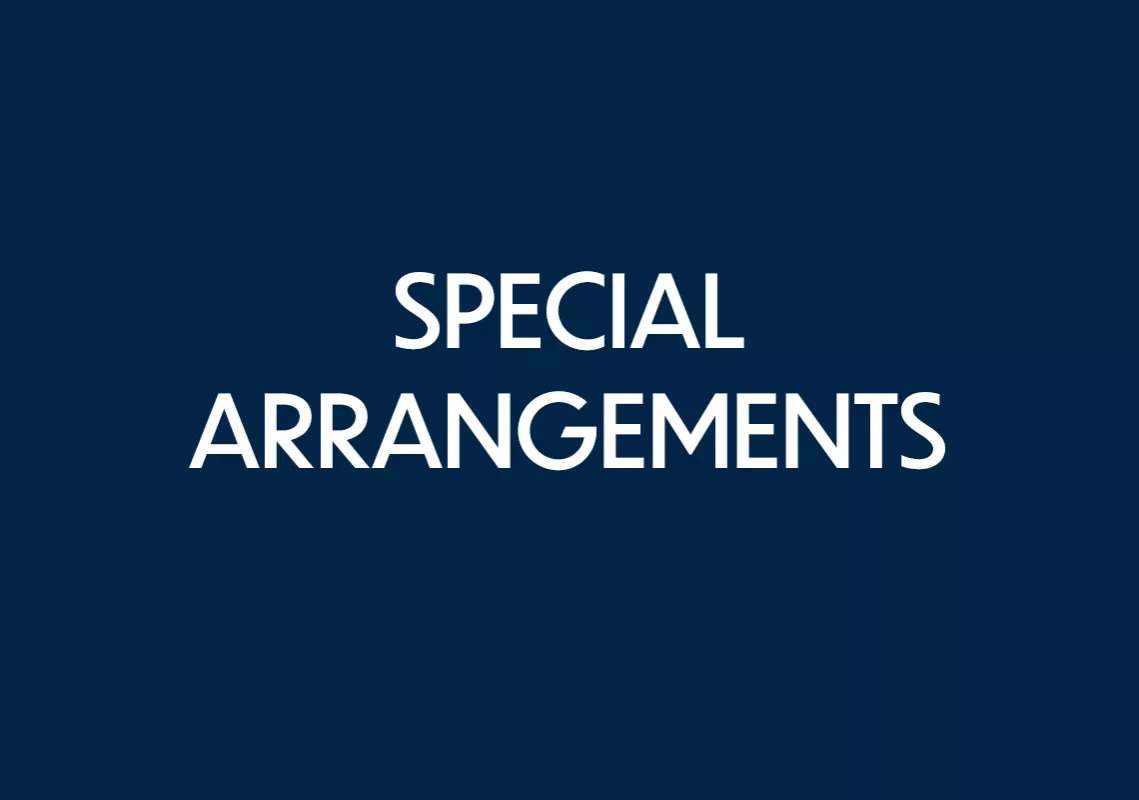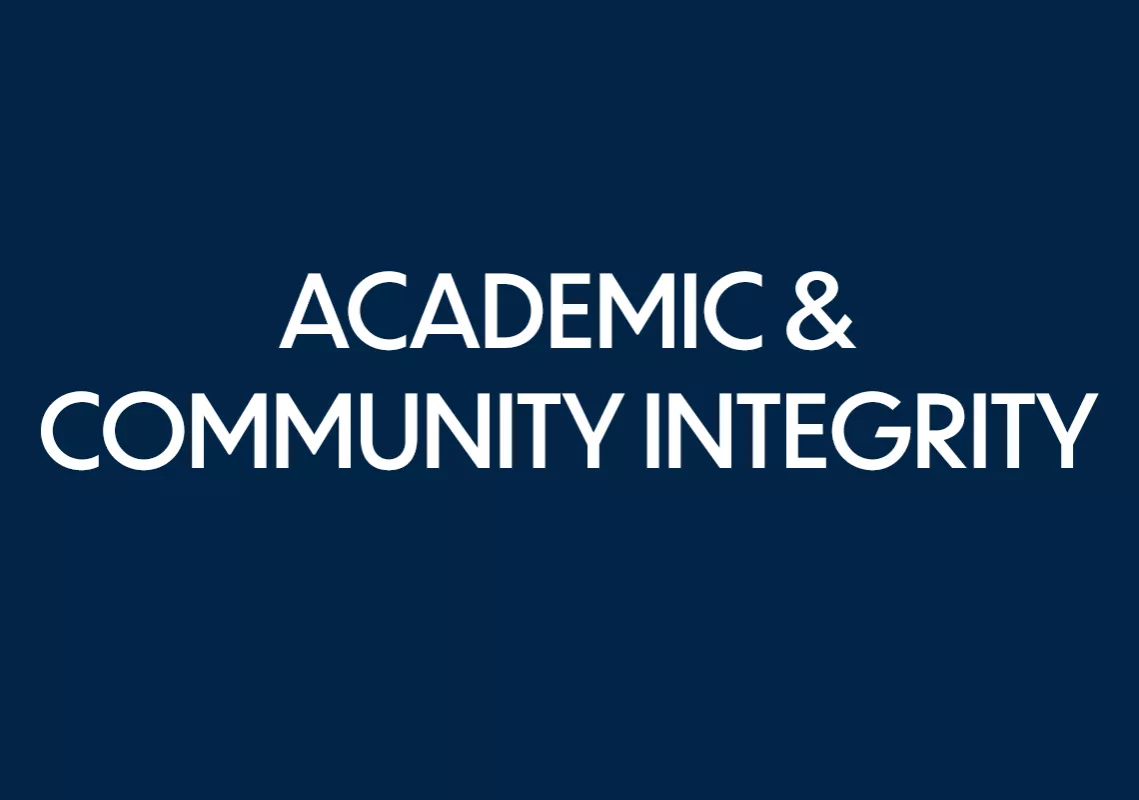
For Faculty
The Student Success Office oversees the academic and personal well-being of undergraduates at the College. Faculty work with the Student Success Office on matters ranging from curriculum and registration to the problems encountered by individual students.
Even after a student has a faculty major adviser in their sophomore year, the dean continues to be a resource for students navigating the challenges and opportunities of college life. The deans divide their time between working with advisees and collaborating on various college programs. Based on our experiences, we have put together some information and advice that may be helpful to faculty in their work with students here.
Finally, we provide detailed instructions to faculty who serve as major advisers for reviewing, approving, and updating student major work plans in BiONiC.
Guidelines for Faculty
Whether in their first semester or their final semester, students often find themselves facing unexpected situations that may require assistance or guidance.

Special Arrangements
- Course Withdrawals
- Extensions & Incompletes
- Temporary Absences
- Requests for Exception

Academic & Community Integrity
- Overview of the Honor Board & Honor Code
- Handing Honor Code Violations
- Honor Code Reporting Forms
- Dean's Panel
Concerned about a Student?
Depending on how urgent or significant your concerns may be, there are options for reporting your concerns. In urgent cases, please use one of the following options:
- Call Campus Safety with Immediate or Emergency Concerns
- Contact the Dean Regarding Significant Concerns
For all other non-emergency concerns, please either submit an Academic Report of Concern or refer a student to Student Support Services.
Non-Emergency Reporting Options

Submit an Academic Report of Concern
If you choose to submit an Academic Report of Concern, here is what we might do with the information you provide:
- Reach out to the student directly, to reinforce the message you have given the student and also to let them know how they can set up meetings with us.
- Check in with the student's other faculty, to see how those classes are going.
- Follow up with you either to learn more or to share information or guidance.
We will also sometimes stay in the background, especially if only one class is involved, and the student already seems to be taking appropriate steps.

Refer a Student to Student Support Services
Reasons to refer students include distress related to anticipated transitions and/or unexpected events, on and off-campus resource consultation, recent physical and/or mental health hospitalization, assistance with contacting faculty for short-term medical experience or personal emergencies impacting academics, and leave guidance and support.
How to Refer Students
- Student of Concern referral form
- Students may also self-refer by using the referral form above.
What Happens Next?
- When referrals are received, Student Support Services and/or the appropriate Class Dean (during college business hours) will review referral and provide follow-up to referral source as needed, while maintaining referred student privacy.
- Depending on the reason for referral Student Support Services and/or the appropriate Class Dean will complete outreach to the referred student and invite them to meet in-person, over zoom, or via phone to discuss concerns, resources, and actions to address needs.
A Referral Guide for Faculty and Staff
Seeking out Support to Ensure Student Success. Click here for a printable version of the guide.
The Class Deans and Student Support Services are located in the Office of the Undergraduate Dean in Guild Hall.
First-Year Experience Dean: MB Horvath
Email: mhorvath@brynmawr.edu; Phone: x7332
Sophomore Experience Dean: Melissa Giess
Email: mgiess@brynmawr.edu; Phone: x5369
Junior Experience Dean: Baru Roberson-Hornsby
Email: broberson@brynmawr.edu; Phone: xTBD
Senior Experience Dean: Akirah Fenimore
Email: afenimore@brynmawr.edu; Phone: x5368
Office of Student Support Services
Sara Donals (she/her), Assistant Director, Student Support Services
Email: sdonals@brynmawr.edu; Phone: x5372
Rose Miller, Campus Safety Student Liaison
Email: rmiller2@brynmawr.edu
- Academic Concerns
- Accident and Injuries (e.g., Concussions)
- Emotional or Behavioral Concerns
- Family Emergency/Death of a Loved One
- Financial Aid Concerns
- Financial Hardship
- Food and/or Housing Insecurity
- Leave (from the college) guidance and support
- Medical Issue/Physical Health Concerns -
- Mental Health Issues/Concerns
- Navigating College-Wide Requirements
- On and off-campus resource consultation
- Personal Concern about a Student
- Relationship Concerns
- Students Repeatedly Missing Class
- Title IX Support - Physical and/or mental health hospitalization
- Unable to reach a student after multiple attempts
- Uncharacteristic Behavior
If you’re ever unsure of who to contact, please contact the Class Dean directly and copy the Assistant Director of Student Support Services.
Director of Counseling: Luci MacNamara
Email: lmacnamara@brynmawr.edu; Phone: x7361
Student Life and Wellness Building
Reasons to Refer Students
- Expressed suicidal or homicidal thoughts (if urgent threat, call 911 or Campus Safety for ER transport)
- Major Life Event in Student’s Life (death of a loved one, house fire, significant break-up)
- Mental Health, Emotional, or Behavioral Concerns
- Recent mental health hospitalization
- Relationship Concerns
- Student Repeatedly Missing Classes
- Title IX-Related Experience
- Uncharacteristic Behavior
Please refer students to Triage Hours for an initial assessment: Monday through Friday, 10am-12pm and 2-4pm
Major Advising
For instructions on the reviewing and approving students' online major work plans, click here.
Faculty members provide consultation and support as students discover and explore fields of interest in their first year, decide and declare their majors as sophomores, and then complete a major as a substantial part of their junior and senior years. During their final two years, students are no longer expected to meet with their dean each semester to discuss class selection; instead, they meet and consult with advisers and other faculty in their major departments and often minor programs or departments as well. In addition to overseeing completion of major/minor requirements, faculty advisers in the departments discuss overall course planning during the final two years and plans for post-graduate life. These meetings should take place at the following times:
- during November preregistration for the spring semester, and
- during April preregistration for the fall semester, and
- during the first week of each semester if the advisee has dropped or added any courses in their major or the advisee was away from the college during preregistration.
Notes from these meetings, especially updates to a student’s path through the major, should be recorded in the Online Major Work Plan so as to be visible to both faculty and students.
Faculty will be invited to participate in programming sponsored by the Dean’s Office to encourage explorations of possible majors. Departments and programs will also be expected to host “Departmental Information Sessions” each semester to allow prospective and current majors to gather, meet faculty, and learn about program requirements and opportunities.
Departments differ considerably in how they divvy up the role of major advising among their members. Some allow students to choose a major adviser from any continuing faculty member; others assign advisers to work with a particular graduating class, or assign a sophomore adviser, junior adviser, and senior adviser. All of these models have advantages and disadvantages, but in any case, it is important that departments communicate clearly with students about how major advising works in that department. The Provost’s Office collects and distributes information about major advising at the start of each year, but we encourage departments to make that information available on department websites as well.
In agreeing to be the primary and secondary major advisers, faculty members agree to work with a student throughout their remaining semesters at Bryn Mawr. The expectation is that they will advise the student through the thesis process. Both advisers will determine the final grade for the thesis.
Advisers will fill out the online proposal evaluation form fully and frankly. The Committee relies on the advisers' knowledge of both the field and the student in deciding whether the proposed major is approvable and in deciding what revisions if any to require.
If the primary major adviser will be on leave during the student’s senior year, this should be discussed at the time that the faculty member first agrees to be the student’s adviser. In these situations, the student is responsible for working out in advance who will fill in for the primary adviser—either the secondary adviser, if that person agrees to that, or another faculty member.
Faculty members can contact the UG Deans Office if any questions or concerns arise.
Faculty & Student Entertainment Fund
The College is committed to encouraging and supporting interactions between faculty and students. Students who form meaningful relationships with their professors outside the immediate context of course work consistently report greater satisfaction with their undergraduate experience. The rewards for faculty members can be just as great.
The Student Success office has funds to support faculty connections with students in small informal group interactions outside the classroom. This program intends to enhance the students’ learning experience and their sense of connection to their faculty and the College more broadly.
Faculty members are eligible to receive up to 15 meal passes per semester for their use during lunch with students (who will cover their meal expenses with a meal plan or their own funds) that is not directly related to curriculum, e.g., language tables are not funded by the Student Success office. Faculty anticipating a need to fund course-based activities should consult with their department chair.
In addition, a faculty member may be reimbursed for up to $75 per semester for expenses related to entertainment of students in an activity that takes place outside of class time. These can be course-related. Faculty requests for Student Success office funding to provide refreshments for students after attending an exhibit, a talk by a campus speaker, or at an end-of-semester celebration (held outside of class time) are acceptable.
To obtain the Faculty and Student Entertainment Request for Reimbursement form, please complete the Faculty and Student Entertainment Fund Request Form and return to the Student Success Office for processing. Please allow several days to process reimbursements.